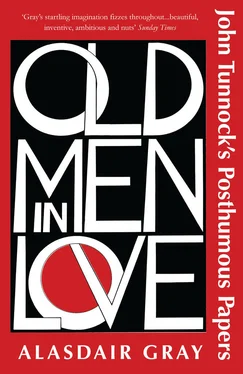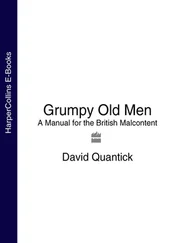SOCRATES: Can I say something, Mr President?
PRESIDENT: If it’s to the point.
SOCRATES: Forget this trial, Alcibiades. If I’ve hurt you I want to know how. Please tell me about it.
ALCIBIADES: ( looking at him for the first time ) Here?
SOCRATES: ( smiling ) This may be the last time you ever see me. Did I once really harm you?
ALCIBIADES: ( not bitterly ) Yes, vewy much. Before meeting you I thought I was going to be a gweat man. I had vewy foolish confused ideas about how to do it but they were common ideas — most young men have them — and if I’d stuck to them I’d have become an ordinawy politician and militawy leader doing the usual amount of damage and being highly wespected for it. But you made me despise what other people think. When you were talking I felt above all that. You were like wine to me! I knew myself when we were together. When we were apart I was sure of nothing. Well, I’ve often been dwunk but never been alcoholic. I’ve often been in love but never dependent. That’s why I stopped seeing you. It hurt both of us, I suppose –
Socrates smiles and nods.
ALCIBIADES: — I think it hurt me most. After that I knew the only uncommon thing about me is my. . ( he makes an effort ). . courrrage. Nobody has ever doubted that. I’ve astounded the world with it. Yes, I’ve given people something to talk about. Otherwise I’ve been completely useless.
ANYTUS: And now you’re a common pirate.
ALCIBIADES: ( amused ) Not common at all. I wun a pwivate shipping concern under the pwotection of the Persian Empewor. He’s a close fwiend of mine. For the time being. ( to Socrates, softly, but with an effort ) I’m sorry.
SOCRATES: ( earnestly ) You should have seen more of me, Alcibiades.
ANYTUS: Alcibiades has just made it clear that he would have been happier and a better man if he’d never seen you at all.
ALCIBIADES: ( to Socrates, tenderly smiling ) I’m afwaid he’s wight.
SOCRATES: ( smiling and sitting down ) You should have seen more of me.
ANYTUS: You can go, Alcibiades.
Alcibiades leaves the stage and sits where he can see what follows.
ANYTUS: ( to the president ) There could be a lot more trouble with the next witness.
PRESIDENT: ( consulting his paper ) Yes, I see. ( loudly to the whole court ) Listen you lot, listen everyone. We are trying Socrates today. Socrates. Nobody else. Our feelings about the witnesses are irrelevant and should be kept in check, so I am going to ask a favour from each one of you, especially ones with brains in their heads. If a neighbour interrupts proceedings with violent expressions of vocal disgust, gently remind him of his dignity as an Athenian juryman by punching him in the throat, will you?
Laughter in court and some cries of “Yes!” “Alright!”
PRESIDENT: Say it a bit louder, I’m hard of hearing — ( Louder cries of agreement ) — Good! Otherwise I have to stop the trial. I mean that. Come on Critias, come on.
In dead silence Critias takes the floor, an urbane big whitehaired business and military man.
ANYTUS: ( pointing at Socrates ) You were a follower of that man?
CRITIAS: I learned a lot from him, if that’s what you mean.
ANYTUS: ( nodding ) About politics?
CRITIAS: (nodding) It was my business. It is supposed to be every Athenians business, God knows why.
ANYTUS: What did Socrates teach you? We all know what you went on to do, so don’t try to hide what you believed.
CRITIAS: I certainly won’t. Socrates demonstrated, again and again, that we can trust a builder to build, a tradesman to trade and a doctor to heal, but we cannot trust a parliament to govern.
ANYTUS: Why not?
CRITIAS: Because parliamentary skill is all in the mouth. Socrates wanted nations ruled by the best people for the job.
ANYTUS: We all want that, Critias. The problem is choosing them. So Socrates was opposed to democracy?
CRITIAS: He was opposed to slackness, evasion, incompetence and passing the buck. Of course he was opposed to democracy.
Socrates scratches his head. From the jurors comes a rising murmur of disapproval.
ANYTUS: Thank you for being frank. Besides being an aristocrat, a general and a tyrant, you once wrote a play. In it a character said that even if gods did not exist, wise politicians would prop them up like scarecrows, to frighten people into obedience. Did you get that from Socrates?
CRITIAS: Of course not. Politicians have always known that, which is why you are charging Socrates with heresy. You are propping up the gods of the state in order to stay in power and silence your critics. . the clever ones, not most people.
ANYTUS: ( vehemently ) I believe in the gods! I love the people!
CRITIAS: ( amused ) And probably most people believe you believe, Anytus. They may even believe you love them. I have fallen from power, I don’t need to pretend.
PRESIDENT: ( roughly ) Less of the clever stuff, Critias.
ANYTUS: ( shouting ) Didn’t you write that the Spartan system of government is the best in Greece? And isn’t that the opinion of your master Socrates?
CRITIAS: No. I praised it as the most stable government in Greece. It has lasted two centuries without change so it must be. They also breed the bravest soldiers, one reason why they defeated us. Every Greek knows that.
ANYTUS: No wonder they turned you into our dictator!
CRITIAS: Nonsense, the Spartans are practical men, they wouldn’t trust someone because he’d written something. An agreement with a parliament isn’t worth the paper it’s written on so they signed a treaty with people from the best Athenian families, having made them the government. I became leader because I was the best manager of men among them. Don’t blame Socrates for that. Blame my ancestors. They made me what I am.
ANYTUS: We know how you managed men! Thirty of your best people put fifteen hundred of our people to death without trial.
An uproar of boos, yells and hisses. Critias glances humorously at Socrates as if to say “We understand the mob, don’t we?” Socrates ignores him, frowning thoughtfully. The President stands up.
PRESIDENT: ( bellowing ) If you don’t!. . Stop this din!. . I will end!. . The trial!. . Now!. . And nobody will get paid!
Many start making “shush” sounds. Uproar lessens, stops.
PRESIDENT: Thanks for your support citizens. The man’s a bastard but we need him to get at the truth. ( he sits ) Socrates, have you any questions for your. . pupil?
SOCRATES: Critias, you and I often talked about politics so tell the court the truth. I criticized the democracy for pursuing a war we could never win. I also praised the Spartans for the care they took to educate their young. Did I ever praise a government that killed and robbed its own people?
CRITIAS: ( grimly ) No, I had to learn the practical details for myself.
SOCRATES: Mm! ( he sighs ) Do you remember ordering the arrest of Theramines? It was six years ago, in this council chamber.
CRITIAS: Yes. ( sarcastically ) Would it help you if I reminded the court of what happened?
SOCRATES: It might.
CRITIAS: You and a couple of friends got between the condemned man and the police, shouting that Athenians should not kill one another and asking the crowd to help you stop that arrest. Of course the chicken-livered majority stayed clear. If I had been longer in power I would have had to get you killed, too. You criticized my regime, you disobeyed it and that was illogical! You obeyed the orders of a democracy you despised, why inconvenience a friend who was doing the best possible thing?
Читать дальше












